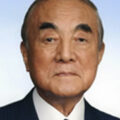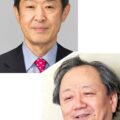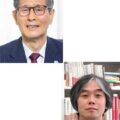Three-way conversation—Ongoing social cleavages in Japan, facing severe challenges of a super-aging society: Neither the ruling nor opposition parties are able to seize “the new dimension of political competition”
Nakanishi Hiroshi (Professor of Kyoto University), Sunahara Yosuke (Professor of
Kobe University) and Imai Takako (Professor of Seikei University)
The Abe Shinzo administration brought the Japanese public a sense of euphoria
—The Suga administration claims to be a successor to the former administration. What are your reflections on the nearly eight years of the Abe administration?
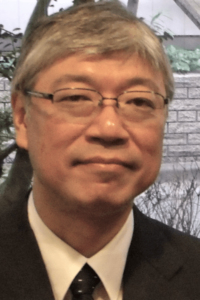
Prof. Nakanishi Hiroshi
Nakanishi Hiroshi: I try to organize the characteristics of the Abe Shinzo administration based on three perspectives. Firstly, the administration had a good understanding of how the national consciousness changed from reform-minded in the early years of Heisei (1989–2019) to stability-minded. In the early Heisei period, we had the Gulf War, the collapse of the asset bubble, and a constant clamor for reform—political reform, administrative reform, economic reform—in the context of the non-LDP government that followed splits in the Liberal Democratic Party (LDP).
However, after the bankruptcy of the Lehman Brothers, the failures of the administration of the Democratic Party of Japan (DPJ), the Great East Japan Earthquake, and other events, the second Abe administration responded well to a strong sense in the nation of, somehow or other, wanting stability. I think the administration reassured the public for a time.
Secondly, although the administration was outwardly pleasing and the policy presentations were successful, the substance was often quite dubious.
I divide the track record of the Abe administration into the period up to 2015 and the period thereafter. The latter period since 2016, in particular, saw the drive of this tendency as seen in the policies for the empowerment of women and for accepting foreign workers, with vocal slogans and shoddy substance. As a result, there was an increase in superficial misrepresentation. We are now seeing how it erupted with the COVID-19 response. However, the approval ratings for the Abe administration were not only linked to the lack of opposition parties, but also to the lack of alternative political leaders in the LDP.
Thirdly, even though the administration hit the accelerator on Prime Minister-led initiatives, the brakes were applied from below and the initiatives could not be pushed through as symbolized by the Go To campaigns.
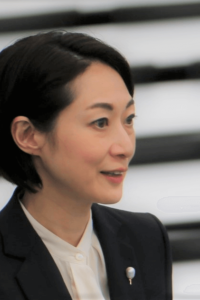
Prof. Imai Takako
Imai Takako: In a society that felt gloomy after a series of crises, the Abe administration brought a certain section of the population a sense of euphoria. It was something that people were craving. However, it is the substance that is now called into question.
Nakanishi: It’s understandable. The Abe administration took a fairly deliberate approach to media control. In addition to conventional television and newspapers, they also used social media, which have come to influence politics worldwide in recent years.
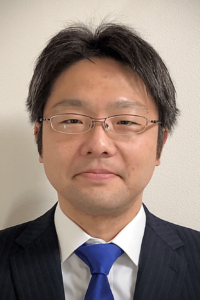
Prof. Sunahara Yosuke
Sunahara Yosuke: The Abe administration succeeded in creating a sense of euphoria even though it turned out to be transient. People may well be right to say that it was an outward show. On the other hand, the opposition parties were unable to properly understand the substance of what the voters were hoping for at the back of the stability.
I think that former Prime Minister Abe is someone who carefully sees a situation and tries to develop an appropriate way to respond to the public. He changes his own strategy depending on the responses of his counterparts. When his approval rating went down, he also put forward some liberal policies. I am not sure if the policy changes were genuine, but paying attention to public opinion while running the government is probably the reason his administration lasted so long. His approval ratings dropped when he did something that drew criticism, but with each election, he was able to reset his ratings and present new policies.
Proper inter-party rivalry is lacking in Japan
Imai: To sum up the Abe administration, we must ask whether the administration was able to effectively tackle issues such as the problems presented by the aging population and dwindling birthrate, which is unparalleled anywhere in the world, disparity, or the delayed switch to the knowledge economy. If we apply a series of social indicators to look at the present situation in Japan through an international comparative lens, Japan is clearly inferior among developed countries. The aging rate, the debt-to-GDP ratio, wage disparities between men and women, comprehensive gender gaps, and per-capita GDP are the worst in the G7. The total fertility rate and the relative poverty rate are second from last while productivity per capita is ranked lowest. Japan ranks fourth in terms of ICT investment as a percentage of GDP. The depth and multi-layered nature of the problems are conspicuous. Nevertheless, there were hardly any signs of clear improvements under the Abe administration, rather, societal insecureness increased.
In addition, the foundations for a democracy, such as governance that addresses a range of risks and important issues, transparency, openness, accountability, and tolerance to objections, have been seriously undermined by the concealment or falsification of official documents, and the repression of criticism.
Meanwhile, the opposition parties are too weak and the watchdog functions of the Diet have failed. As a result, the faults in Japan’s political system have come into sharp relief.
Sunahara: The issues that Professor Imai has identified have been talked about for a good twenty years and, of course, the Abe administration should also have confronted them. But, I think other administrations should also be criticized, and the opposition parties and the Japanese public should probably also consider these themes as their own problem.
Imai: Of course, we cannot blame the Abe administration for all the structural problems in Japanese politics. For example, among the political reforms of the Heisei era, electoral reforms and administrative reforms took precedence while Diet reforms were left nearly untouched. This is one reason for the decline in the function of the current Diet. Nevertheless, I think the Abe administration, being remarkably stable and long-lived, is responsible for accelerating the eroding of the Diet.
This was made manifest by the sharp decrease in party leader debates and the snap Diet elections, the timing of which was disproportionally damaging to the opposition parties. It is up to the decency of the ruling party to maintain a fair competition environment, which is vital for democracy. However, such self-awareness was lacking in the Abe administration and the fundamental perspective that a democracy needs opposition parties fell by the wayside.
Nakanishi: As Professor Imai points out, the Diet reform was left out of the Heisei reforms. Since it is the basic instinct of the ruling party to want to go ahead without any fuss in the Diet, the opposition parties have to insist on a properly functioning Diet. However, the current power the opposition parties have against the government in the Diet, though limited, is often based on customary rules, so they tend to worry that they will increasingly lose their raison d’être if the Diet reform nullifies those customary rights. To be honest, I suspect that the opposition parties are not that keen on Diet reform. Unless they have the ability to come to grips with this problem as well, the opposition parties will be seen as part of the old guard.
Imai: It is precisely because the Diet operates on an accumulation of customary rules that there is a route for improving the quality of scrutiny by devising way to increase openness. This could include an agreement to turn the party leader debate into a regular opportunity, as in the case of the PMQs in Britain.
One of the grave concerns of democracy in Japan today is that it lacks a proper inter-party competition. Even if it did not lead to a change of government, revitalizing such competition would bring a sense of tension to the political process.
In Britain, the opposition parties are eligible for public funding and the amount paid to the opposition parties is much higher than the governing party. Furthermore, by convention, opposition parties are entitled to enter into confidential contact with the Civil Service in advance of a general election. The system is designed to make the opposition parties better prepared for government.
Abe diplomacy as a stabilizer
—How would you sum up Abe diplomacy?
Nakanishi: I think it was in line with the international situation for the Abe administration to take the initiative by adopting a heading strategy against China and raising Japan’s profile internationally with the Japan-US alliance as the axis. Establishing a National Security Council (NSC) for Japan and drawing up the National Security Strategy and National Defense Program Guidelines for FY2014 and beyond were strategic moves. The pinnacle was Japan’s Legislation for Peace and Security in September 2015.
In 2015, Prime Minister Abe also made a statement on the seventieth anniversary of the end of the war. Before its issuance, there was a mix of expectation and unease about the statement wondering if he would backpedal on the apologies and reflections on the war made in the early Heisei era, including the statement by Prime Minister Murayama Tomiichi in 1995. Ultimately, there was no retraction, however, by shifting the context, he overwrote the earlier statements, so to speak. This resulted in the conclusion of an intergovernmental agreement on the comfort women issue with South Korean President Park Geun-hye at the end of the year.
I think the greatest foreign diplomacy achievement in the latter half of the administration was the skillful handling of the Trump administration. Maintaining the relationship with the Trump administration while achieving the TPP-11, the Japan-EU Economic Partnership Agreement, and other aspects of the international order was recognized globally.
Conversely, with regard to North Korea, South Korea, and Russia, the Abe administration raised the expectations of the Japanese public too far. They created an atmosphere that suggested they could resolve issues that are not so easy to resolve. Ultimately, it ended with recognition that there was nothing to be done, but no matter who takes office, it is difficult to lower the expectations of the public once they have been raised. This has left us with a foreign policy challenge.
Sunahara: I was in Canada from August 2016 to 2018, and I got the impression that the final stage of the Abe administration was better recognized. At first, the image of Prime Minister Abe as a right-winger was strong in the West, but I think his international reputation started to change from around 2017 in the debate over the TPP11.
Nakanishi: I think people appreciated Prime Minister Abe as a kind of stabilizer amid the confusion and growing sense of crisis brought on by the Brexit referendum in 2016 and the unexpected emergence of the Trump administration. The stable relationship between Japan and China may also have enhanced his reputation.
Imai: It is my impression that the price for the security and foreign policy was too high. It is worth noting that the strengthening of the Japan-US alliance, which was founded on the personal relationship between two heads of state, hinges on buying large quantities of American-made weapons.
President Obama’s visit to Hiroshima was a major diplomatic achievement. On the other hand, the Abe administration was clearly reluctant to endorse Obama’s focus on nuclear non-proliferation.
The difficult aftermath of a long-term administration
—Let’s move on to the issue of the Suga Yoshihide administration. Other than COVID-19 countermeasures, what should the administration prioritize?
Nakanishi: Looking at past examples, it is very difficult to take charge of the government after a long-term administration. In postwar terms, the Yoshida Shigeru, Sato Eisaku, Nakasone Yasuhiro, and Koizumi Junichiro administrations were long-term, but Prime Minister Suga Yoshihide is perhaps close to the Takeshita Noboru administration that followed Nakazone, or the first Abe administration after Koizumi.
Nakasone tackled consumption tax and Koizumi dealt with postal reform. They both had some success, but it was left to the next administration to clean up after the final days. The successor administrations were relatively short-lived and ended before the reforms were properly implemented.
Given the extraordinary situation with the COVID-19 pandemic, the timing for the Lower House election is a matter to be watched. If Suga carries the day in the election, he will be reelected in the 2021 LDP Presidential election and the seeds for a long-term administration will have been planted. If not, the Suga administration will likely be a provisional government until September 2021. Prime Minister Suga’s stance of focusing on COVID-19 countermeasures rather than dissolution is sensible for the time being, but Finance Minister Aso Taro and other influential Diet members will worry that it won’t be possible to dissolve the Lower House if the administration misses out on high approval ratings. This tug of war is quite an important power struggle. I think it will test the relations between the factions that supported Prime Minister Suga.
To mention another point, the decision to host or cancel the Tokyo Olympics and Paralympics must be made by a certain point in time. Even if the Games are organized, it is certain that they will not go ahead as initially planned. So, there has to be a decision on the setting for the Games, or how to settle the matter if they are cancelled.
In normal times, foreign policy, including relations with the United States and China, would be a challenge for Prime Minister Suga whose diplomatic skills are an unknown. However, since foreign policy has slowed down around the world due to the COVID-19 pandemic, taking some time to prepare might work to Prime Minister Suga’s advantage.
Imai: The eleven years of the Thatcher administration and the ten years of the Blair administration in Britain are often held up as models for political reform in Japan. With reference to these administrations, we can say that their legacy remained as constraints to the successive administrations even after the long-term administration was over.
Policies created during a long-term administration generate new groups of beneficiaries. So, even if the next administration seeks policy innovation, the legacy as well as the pressure from new interest groups may often hinder such reforms.
During a long-term administration, a political party tended to spawn large groups of follower politicians who supported the administration, and “children” who were elected during the administration. Since the new administration is constrained to embrace these forces, some difficult adjustments are necessary when tackling something new.
The Suga administration appears to be no exception. Even so, it is under severe pressure to tackle the weak areas of the Abe administration policies. The reason being that the COVD-19 pandemic is a direct hit on the most vulnerable parts of society in Japan. The employment crisis is increasingly intensifying while the problems of the lost generation due to the Heisei recession were left unsolved under the previous administrations.
I think that in such a critical situation, we need diversity and openness to allow counter-proposals to emerge out of the LDP and the Diet to be a forum for debate where the issues are brought to light.
Sunahara: I think the Suga administration will weigh up the relative merits of what they should do and what they want to do before deciding on their top policy priorities. The administration will hardly consider opinions on policy issues from those who are outside the Cabinet.
In this situation, it is a matter for the opposition parties to figure out how to put pressure on the next election and to pin down the top priority issue.
Reasons why the opposition parties are too weak
—What are the issues for the opposition parties after the reshuffle?
Nakanishi: Speaking of opposition parties, in the Heisei era, opposition parties meant something very different from opposition parties in the Showa era. The latter not only never held political power, but never wished to hold it; rather, I think they were expected to block any revision of the Constitution. However, in the Heisei era, electoral reforms were implemented to create a two-party system that would allow a change of administration. So, we had the DPJ which was created by a number of Diet members coming together. However, the DPJ was a mess internally and the party disintegrated without putting up a fight when they confronted difficult questions during their administration. Later Prime Minister Abe ridiculed the period as a nightmare.
Imai: A strong sense of disappointment, even anger, still lingers among voters with regard to the former DPJ administration. Voters without party affiliation are particularly wary of the ability of the opposition parties to hold the reins of government, including the economy and foreign diplomacy. Improving this negative image is an unavoidable issue.
Nakanishi: However, with regard to the Legislation for Peace and Security issue in 2014 and 2015, the DPJ was split between those who opposed Constitutional reform and those who supported reform and, in the end, the party broke up in 2016. It was a return to something that resembled the Showa-era opposition parties. The party has now regrouped, but since Edano Yukio of the Constitutional Democratic Party of Japan (CDP) remains party leader, the blunt question is whether this move is not too refreshing.
Imai: When a new party is formed through mergers, compromise and proficient consensus-building are the core practices for coalition politics. The CDP should explore how to manage a new coalition amongst opposition parties.
Sunahara: There are social cleavages in Japanese society and I worry that they are serious, but it seems as if there is hardly any link between politics and these social cleavages. For example, the LDP supporters are not necessarily found only among the affluent classes, neither is it the case that the opposition parties are supported by the poor. Looking at generational differences, it is also not the case that the comparatively elderly support the LDP and that young people support the opposition parties. On the contrary, opposition party supporters tend to be the elderly. Although there are social cleavages, I think the problem is that this is not properly reflected in politics.
Voters do not necessarily pick the LDP by scrutinizing the platforms of political parties but tend to eliminate an opposition option before the vote. The situation in which many voters choose between the LDP and abstention is like a blind trust. I doubt that even the LDP understands why they are supported.
Imai: The electoral system also has an impact on the weakness of the opposition parties in Japan. We have a mix of the single-seat constituency system where the winner takes all, and the proportional representation system, which tends to generate multiple parties, but the single-seat constituency system is predominant. Political parties easily split into several parties, but since the major battleground is the single-seat constituency, the biggest political party benefits.
In addition, the LDP and Komeito cooperate extremely closely on elections. They diverge on policies, but they have a broad wingspan because the relationship is complementary.
If the opposition parties try to present themselves as an option for government under this system, it is clear that the governing party will benefit unless the opposition consolidates its power. However, the opposition parties have been through repeated breakups and mergers.
Moreover, if someone doesn’t get along well with the party leaders and the top management, the system of proportional representation provides an incentive to try to get elected by creating a new party. The opposition parties must recognize that a system where there is “one predominant force and the others are weak” has become normalized.
The opposition parties are not attracting support
Nakanishi: While we are on the topic, CPD is not the only opposition party. There is also the Japan Innovation Party, the party of the Osaka Governor who attracted attention overnight with his views on COVID-19 treatments, the Reiwa Shinsengumi, the Party to Protect the Nation from NHK (currently, the Party to Protect the People from NHK), and other movements that resemble Western populist parties. What are your thoughts on the distance between voters and the opposition parties if we include these movements?
Sunahara: For young voters, the options are to vote for the LDP or to abstain, and the opposition parties do not enter the equation. I think that one reason is that the opposition parties cannot agree on how to deal with the issue of Article 9 of the Constitution and the Communist Party (JCP).
Nakanishi: Article 9 is a tricky theme for the opposition parties. The issue will surely attract a certain level of support, but if that is their only battle cry, the young generation will view them as a sort of old guard and their support base won’t grow. To focus on the issue of the Constitution is an overall negative strategy for the opposition parties.
Sunahara: Since a change of government also has aspects of a generational change, one model is for the opposition parties to act as a conduit for the way the young generation thinks. If they try to win with the backing of the elderly and supporters of the Constitution only, they will lose the young people. In that sense, the opposition parties have to change their minds on the generational problem.
For example, the young generation does not necessarily favor the LDP’s opposite attitude to the optional dual-surname system. It is not even regarded as an election issue whether or not to alter the practice based on traditional family values in the first place. The opposition parties do not emphasize this contentious issue even though the younger generation may give support to pursue the value of diversification. This is because there are also cleavages within the opposition parties. The lack of support is unavoidable unless they go after the demographic that wants to change the status quo.
Imai: As Endo Masahisa, Associate Professor at Waseda University, points out, what is remarkable about the generational differences is that the middle-aged and the elderly demographic and the young demographic are reversed when they look at the political parties through the prism of conservatism and liberals/reformists in Japan. Those among the young electorate who endorse gender equality and other liberal positions should in theory be close to the CDP, but the party has failed to attract support among the young. The criteria for young voters are ‘old’ or ‘new’, and in their view, it is the LDP that are perceived as ’new’ innovators, while the DPJ are regarded as ‘old’ conservatives. Each party needs to be aware of this twist when they consider their policy platforms, and make their pitch to the voters.
Even if each opposition party targets a different demographic, they will always be asked to show that they have the ability to manage the economy. Employment is a particularly vital issue. If you look at Japan by global standards, the redistribution effects are extremely low and few people experience the benefits of welfare. Therefore, the public is immediately turned off if a party only advocates redistribution.
One of the reasons the Abe administration drew support, though half-hearted from many, was that they increased employment. However, the reality was an expansion of low-income workers where the number of non-regular employees was a record high. For the opposition parties, a major issue is whether they can put forward systematic and feasible socioeconomic policies that guarantee a living wage, and employment policies that include investment in transition support.
Sunahara: Another reason for the lack of support for the opposition parties is that most of what they say is reactive. That is, they have not been able to frame the issues, but the basic approach is to criticize what the government says.
I think that what people are demanding of the opposition parties is not criticism of the current administration, but to sell their top priorities to the public. They should confront the governing party and say what they will do first when they are in power. For example, regional revitalization, social security, and work-style reform—these are issues that the opposition parties should already have brought up. From their own viewpoint, the opposition parties probably think that they have advocated for these issues, but if they really have a top priority theme, they have to bring it up all the time.
Urban and young voters, who might well have been willing to think about changing the status quo, were drawn to the Abe administration because the administration was able to tap into themes that these voters supported and took for granted. The opposition parties have not been able to put such themes on their own agenda.
Nakanishi: I think that the Abe administration gained international recognition because to some degree they tackled liberal issues such as the empowerment of women and accepting foreign workers. But, I think that these issues were incidental to the Abe administration, which found itself forced to tackle the greater structural issues in Japanese society. Even if they had never touted the empowerment of women, the economic social structure of Japan would be unsustainable unless an increasing number of women and older people went to work. The fact that there are few women in the top strata of politics and corporations is evidence that the structure has not changed in any real sense. The Abe administration extolled new growth industries, but they focused on the same business circles as in the Showa period as if they were trying to save the Japanese home appliance industry.
In this sense, the problems confronting Japan are extremely deep-rooted, and I think that young people hope for an administration that can deliver change with the least amount of pain.
The threat of entrenched and expanding non-voters
Sunahara: Whether or not the LDP will stay strong in the medium to long term is doubtful, I think. The lack of a right-wing rival is one characteristic of the recent LDP election win. Currently, only the LDP and Japan Innovation Party appeal to voters on the right and those who support constitutional reforms. Even though Prime Minister Abe acts quite moderately and sometimes pursues liberal values, many people believed that he was an extreme right-winger, so there was not much room for new parties to the right of the LDP.
However, Suga himself is not necessarily seen as right-wing, so there is potential space opening up to the right of the LDP. I think it possible that political fluctuation may occur if a new party that is more right-wing appears and the existing parties give significant attention to the party. Now I cannot even imagine what it could be like, whether the party will first appear as a somewhat eccentric political party like the Party to Protect the People from NHK, or a neo-liberal party like the Japan Innovation Party.
On the other hand, anti-neo-liberal and left-leaning pacifist approaches where the opposition parties are positioned is extremely fragmented. They may have to form coalitions to oppose the ruling party, but I wonder if those parties could share core values to form a coalition. Though I don’t think the LDP has been able to present their core values to the supporters either.
Imai: I think we have to understand which dimension of political competition non-affiliated voters will set store by to determine the political turning point.
Looking at global trends, people who harbor a sense of political alienation triggered by economical alienation strengthen protectionist and xenophobic tendencies. They emphasize arguments about identity rather than the economical dimension of political competition. This phenomenon cannot be ignored even if liberal values are pushed to the front.
An important point for the relationship between voters and politics during the long-term Abe administration is that non-voters became entrenched. They do not vote, but they are by no means indifferent to politics.
As Professor Sunahara points out, the Abe administration was more right-leaning than the center-right, but if we only look at the highlights of domestic affairs, the LDP appeared to draw toward the center by putting forward policies such as the empowerment of women or tuition-free childhood [and higher education]. Since the Abe Statement on the seventieth anniversary of the end of World War II was to some extent a continuation of the Murayama Statement, it has been pointed out that there is still some dissatisfaction in the conservative demographic, but I wonder about that.
Nakanishi: There was some criticism of the seventieth anniversary statement, but basically, I think the right-wing also accepted the content. One of the reasons being that the expectation of opposition to North Korea and China formed a larger agenda. Another factor is probably that the dominant discourse in the right-wing was not to rattle the Abe administration. As I said at the outset, it was the result of media control by the Abe administration.
Imai: The European experience of recent years has shown that the political pendulum swings greatly when a growing segment of non-voters come together and move. Brexit is a symbolic phenomenon. In Japan as well, the entrenched and expanding non-voting demographic has the potential to become a destabilizing factor. The established political parties should perhaps see their existence as a threat.
Putting forward a new antagonism axis
—Finally, could I ask each of you for a short statement about the medium and long-term issues in Japanese politics.
Nakanishi: I already mentioned that the Abe administration tended to create an illusion of being hard at work by accelerating on the surface and applying the brakes below, particularly in its second half, but this won’t last through the 2020s. The monetary-fiscal policy is an example. Prior to the second Abe administration, Japan was the first to introduce a policy of zero interest rates, which resulted in a huge financial deficit. Even though they were told it was not sustainable, the Abe administration allowed the deficit to grow even larger. This state of affairs is now a shared problem for developed countries and no country is able to easily reset interest rates and public finances. Owing to COVID-19, the West has been forced into “Japanification” whether they want to or not, and I think the twentieth century economic model is no longer viable. Since it is for the time being politically impossible to reduce the huge financial deficit by increasing taxes, Japan must figure out how to theorize its own experience as a country that is a forerunner in addressing emerging problems, how to deal with the reality, and where to apply discipline in policy conduct.
Another issue for Japan is the Imperial Family Law. This is not only a matter for the Imperial household; there is also the aspect of how politicians respond to problems in Japanese society when they are forced to make choices. Even if a female emperor or a matrilinear emperor is recognized, the time is running out to make a change to the Imperial Family Law. Whichever decision is made, there will be opposition, but the decision must be made in the early years of the 2020s. The modern Imperial household is a model for family relations in Japan and a reflection of the reality. I think that the choice will be linked to Japanese family values in the future.
Imai: In Japan, the middle class is in decline and disparities between regions, between generations, and within generations are multiplying. Moreover, the so-called under class stands out as the number of working poor increases. Even with dual incomes, there are situations where people find it difficult to make ends meet. Economic disparity shakes the ground of solidarity even further. Many do not have enough energy to help themselves, even though Prime Minister Suga urged individuals to do so as his first slogan when he took office. In retrospect, the employment of the male breadwinner used to be supported by government policies, which is no longer true. It is now the time to update the way of “public help” in order to enable people to help each other and help themselves. The clock is ticking as it is widely estimated that the number of the elderly population will hit its peak in and around 2040, which is just around the corner.
To break the policy deadlock and create a sustainable society, I think that both the ruling and opposition parties have to think about diversity in the Diet. In doing so, it is essential not only to revamp the opposition parties, but also to have women participate in politics. Women MPs constitute only 9.9 % of the entire MPs in the Lower House in 2020.
Sunahara: I also agree that the various reforms identified so far are necessary. The institutional problems are becoming clear and reformist proposals are emerging. However, looking at the current LDP support base and their way in electoral campaigns, I do not believe that the LDP has any incentive to tackle structural problems and carry out institutional reforms, including local political systems.
We need a situation where the party in power is forced to engage in reform. So, we return to the problem of whether the opposition parties can be developed as a powerful challenger to the governing party in the short term. If the current platforms do not effectively catch the voters, it is important for the opposition parties to create a new dimension of political competition.
I think that the existing important dimension of political competition is the economic left-right dimension, which overlaps with the security issue, especially in the Japanese context. The second one is the reform dimension, which focuses on social security, and whether to aim for social investment or traditional welfare-state style social benefits. I am wondering whether the second dimension could become fused with cultural issues focusing on diversity. It means that the opposition parties create their camp by clearly addressing family values and women’s issues that the young generations take for granted.
But, it is also frightening for a political party to address cultural issues head on. In the West, this cultural dimension has become radicalized, and polarization is becoming more and more serious. It would not be surprising if a similar polarization arose in Japan.
As a researcher of party politics, I think that a stable political system is preferable, but where the problems facing Japan are concerned, there is a sense that we are getting close to the end of the road for finding solutions under the current stable one party dominance.
Moderated by Toya Koichi
Translated from “Teidan—Kadai-senshinkoku Nihon de susumu samazamana bunseki: Yoyato tomo kyacchi dekinai ‘aratana tairitsu jiku’ (Three-way conversation—Ongoing social cleavages in Japan, facing severe challenges of a super-aging society: Neither the ruling nor opposition parties are able to seize ‘the new dimension of political competition’),” Chuokoron, November 2020, pp. 36-47. (Courtesy of Chuo Koron Shinsha) [January 2021]
Keywords
- Nakanishi Hiroshi
- Kyoto University
- Sunahara Yosuke
- Kobe University
- Imai Takako
- Seikei University
- Abe Shinzo
- Heisei reforms
- stability
- Suga Yoshihide
- Liberal Democratic Party
- Komeito
- opposition parties
- Constitutional Democratic Party of Japan
- Japan Innovation Party
- Reiwa Shinsengumi
- Party to Protect the Nation from NHK
- inter-party rivalry
- party politics
- diplomacy

